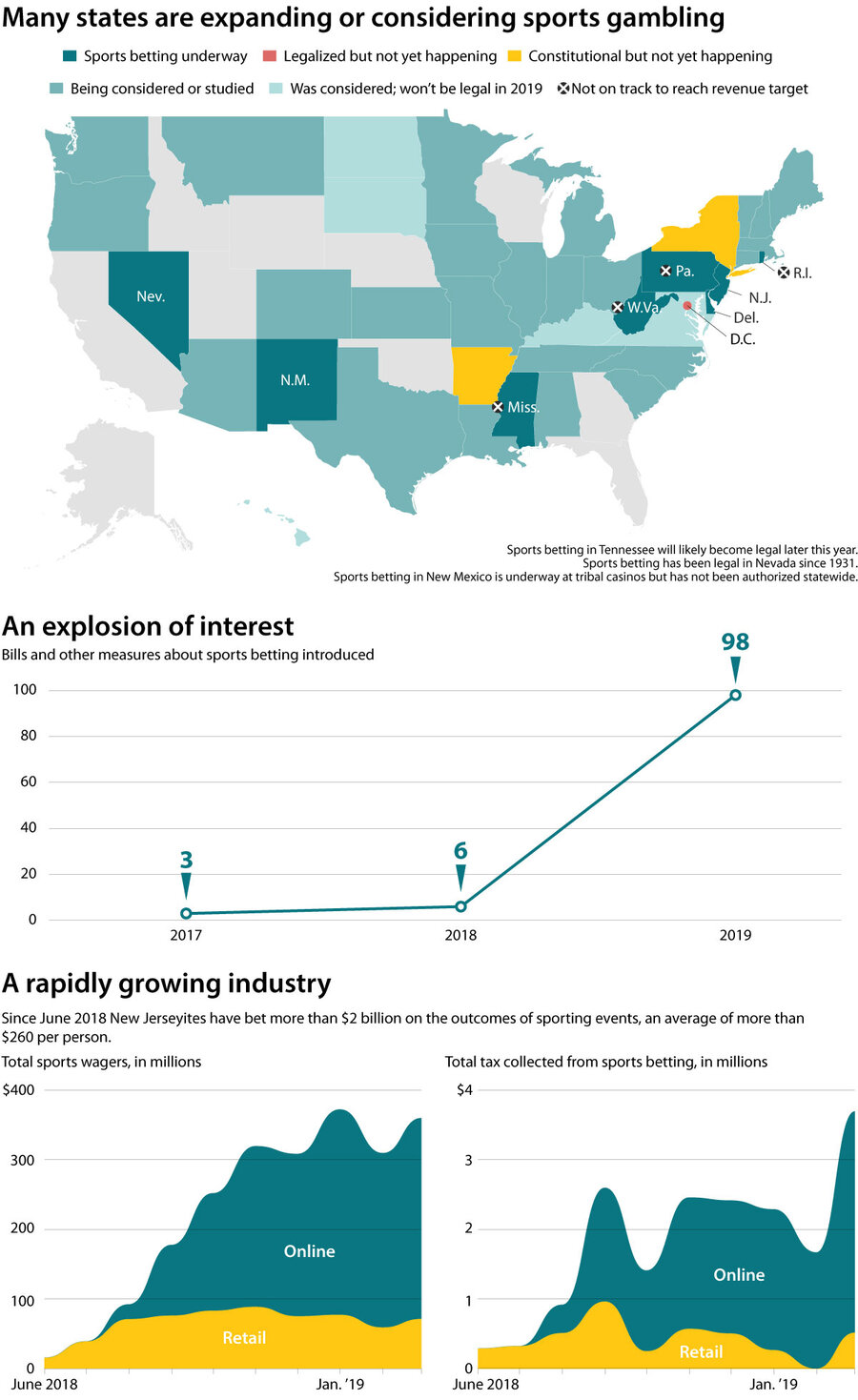More states take a gamble on sports betting. Will it pay off?
Loading...
For decades, wagering on sports in the United States took place mostly in the shadows. Now there are signs that a major shift is underway across the country.
Since the Supreme Court struck down a ban on sports betting outside of Nevada in 2018, new laws have popped up all over the U.S. making the practice legal – and taxable. Now gamblers are making bets in seven more states, and legislation that would allow betting has made its way to the majority of the country’s statehouses.
More daylight has meant more interest, including corporate investment and potential partnerships with professional sports leagues whose managers see betting as a way to boost revenue and fan interest. The National Basketball association went from plaintiff in the Supreme Court case to public proponent of sports betting in just a few years.
State gambling programs have achieved mixed results, however. Of the states with new allowances, only Delaware and New Jersey are on track to meet their tax revenue goals. Rhode Island, on the other hand, is on track to receive 20 times less revenue than it had banked on.
Proponents say that allowing legal betting in more places would increase the fairness of competition and the accuracy of pro sports data, all while channeling more money to state budgets and leagues such as the NBA, NFL, MLB, and NHL. Opponents worry that increased availability and huge investments in sports gambling could exacerbate gambling addictions. Only three of the states that recently allowed sports betting increased funding for treatment programs. None allocate the 1% of gambling revenue the National Council on Problem Gambling recommends.
Analysis by the Associated Press and New Jersey Division of Gaming Enforcement









